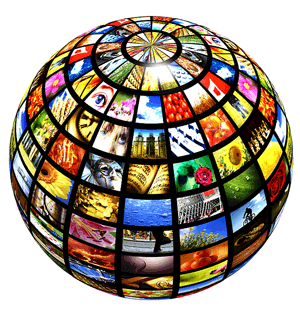You would be hard-pressed to find even one media outlet that didn’t show at least a small amount of bias. As much as journalists are supposed to remain objective, there are always personal feelings and even mandates from the owners of some media outlets that can sway the way news stories are told.
Because of this, it’s always a good idea to broaden your horizons a bit to try to get a more balanced look at the news. And you can do that by seeking greater diversity in your media sources. Let’s take a look at why it’s important to broaden the media sources you get your news from and how you can do that more easily using the Web.
Why You Should Broaden Your Media Consumption
Getting more balanced information by broadening your media sources is important for a few reasons. For example:
- It helps you weed out the hard facts from opinions and story slants.
- Having balanced stories and facts helps you make more informed decisions of your own.
- It stops the spreading of misinformation — people tend to pass along news stories virally, especially online, and slanted stories that aren’t entirely fact-based can lead to panic, hate, and worse, and unjustly so.
How to Find More Diverse Sources of Information Using the Web

There's a whole world of news out there. - Credit: BigStockPhoto.com
If you want to be a more educated member of society who forms their own opinions based on the facts rather than misleading and biased stories from limited sources, you have the power to do that. And the Web makes it easier than ever. Here are a few tips for how you can use the Internet to find more diverse media sources moving forward.
- Read news-oriented blogs in addition to typical media sources. These can also be heavily biased, but the idea is to go beyond what everyone reports to hear real-life stories to put the news in context.
- Get online stories, videos, and radio shows / podcasts from those with other political leanings. Stories with a political edge always seem to be more biased than others. So it’s especially important to see what people on the other side of an issue are thinking and saying.
- Do the same for other regional and international stories. If there is an international news story dealing with the relationship between Pakistan and another country for example, see what media sources in that other country are saying. Even better, also look for media outlets from third party sources — journalists in unrelated countries that have less interest in slanting a story one way or the other. Even when it comes to national news this is important. Don’t only pay attention to your local media outlet’s take. Seek out information sources from the towns and cities where the news is actually happening too.
Getting more diverse media sources into your regular news-gathering habits won’t necessarily change your mind about every issue. But it will give you different views to consider, and it will give you different perspectives you may not have otherwise been exposed to.
It’s up to each of us to make up our own minds. But remember, an opinion can only really be formed when you have the facts about an issue. Trying to form one without facts isn’t an opinion; it’s a delusion. Be a more informed consumer and make up your mind about the important issues that you face every day. Diversify your media sources and you can always make sure you get the full picture.


No comments!
There are no comments yet, but you can be first to comment this article.